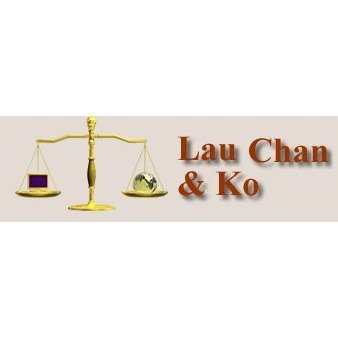Best Arrests & Searches Lawyers in Central
Share your needs with us, get contacted by law firms.
Free. Takes 2 min.
List of the best lawyers in Central, Hong Kong
About Arrests & Searches Law in Central, Hong Kong
Arrests and searches in Central, Hong Kong, are governed by several laws that aim to balance law enforcement powers with individual rights. The legal framework addresses how arrests should be conducted, under what circumstances police can conduct searches, and the protections afforded to individuals against unlawful search and seizure. Known for being a densely populated business hub, Central is characterized by high-security vigilance, meaning understanding your rights and obligations under the law is crucial.
Why You May Need a Lawyer
There are several situations where individuals may need legal assistance concerning arrests and searches in Central, Hong Kong. First, if you are being arrested or have been arrested, a lawyer can help ensure that your legal rights are respected and that you are treated fairly under the law. Second, if you are charged with a crime following an arrest, expert legal help is important to create an effective defense strategy. Third, if you believe a search was conducted unlawfully or your privacy rights were violated, a lawyer can provide guidance and possibly help in mounting a legal challenge. Lastly, foreign nationals and expatriates may also require legal services to navigate the complexities of local laws.
Local Laws Overview
The Police Force Ordinance is the primary law governing police powers in Hong Kong, including arrests and searches. The ordinance specifies the circumstances under which an arrest can be made without a warrant. Additionally, the Magistrates Ordinance provides the framework for issuing search warrants and the conditions under which these can be executed. Importantly, the Bill of Rights Ordinance offers protection against arbitrary arrest and stipulates the rights of individuals who are detained or arrested, including the right to legal representation.
Frequently Asked Questions
What should I do if I am arrested in Central, Hong Kong?
You should remain calm and cooperate with law enforcement. You have the right to be informed of the reason for your arrest, and you should ask to speak to a lawyer as soon as possible.
Can the police search my property without a warrant?
Police generally require a warrant to search your property, but there are exceptions, such as if they believe there is an imminent threat to safety or if they are pursuing a suspect.
What rights do I have if stopped by the police for questioning?
You have the right to remain silent and the right not to incriminate yourself. You are also entitled to ask if you are being detained, and if not, you may leave the scene.
How long can the police detain me without charge?
Under Hong Kong law, police can generally detain you for up to 48 hours before they must decide whether to charge you with a crime.
What should I do if I believe my rights have been violated during a search?
Document all details of the incident, retain any evidence, and consult with a lawyer to explore potential legal actions, including filing a complaint or seeking judicial review.
Can I refuse a search by the police?
If the police have a legal warrant, you must allow the search. However, without a warrant, you are within your rights to refuse unless exceptions apply.
Is it possible to challenge an arrest or search in court?
Yes, it is possible to challenge the legality of an arrest or search through legal processes. A lawyer can assist in pursuing judicial remedies such as filing a writ of habeas corpus or challenging evidence during trial.
What are my rights if I'm a foreign national arrested in Central?
Foreign nationals have the same rights as locals under arrest and search laws, including the right to legal representation and consular notification.
Are body searches legal in Hong Kong? What are the regulations?
Body searches are legal but must be conducted in accordance with strict rules to protect the individual's dignity and privacy. They should be performed by an officer of the same gender in private.
What can I do if I'm asked to surrender my electronic devices during a search?
You are generally required to comply if there is a warrant. If not, you can ask for the legal basis for the request and seek advice from a lawyer if in doubt.
Additional Resources
For additional legal resources, you might consider reaching out to the Duty Lawyer Service or the Law Society of Hong Kong. Government departments such as the Hong Kong Police Force and the Legal Aid Department can also provide information and assistance related to arrests and searches.
Next Steps
If you need legal assistance related to arrests and searches in Central, Hong Kong, it's recommended that you contact a legal professional with experience in criminal law. Schedule a consultation to discuss your specific circumstances. Additionally, you may explore available legal aid services if financial constraints are a concern. Keep track of all documentation and communication related to your case, ensuring you are prepared to provide your lawyer with all necessary information.
Lawzana helps you find the best lawyers and law firms in Central through a curated and pre-screened list of qualified legal professionals. Our platform offers rankings and detailed profiles of attorneys and law firms, allowing you to compare based on practice areas, including Arrests & Searches, experience, and client feedback.
Each profile includes a description of the firm's areas of practice, client reviews, team members and partners, year of establishment, spoken languages, office locations, contact information, social media presence, and any published articles or resources. Most firms on our platform speak English and are experienced in both local and international legal matters.
Get a quote from top-rated law firms in Central, Hong Kong — quickly, securely, and without unnecessary hassle.
Disclaimer:
The information provided on this page is for general informational purposes only and does not constitute legal advice. While we strive to ensure the accuracy and relevance of the content, legal information may change over time, and interpretations of the law can vary. You should always consult with a qualified legal professional for advice specific to your situation.
We disclaim all liability for actions taken or not taken based on the content of this page. If you believe any information is incorrect or outdated, please contact us, and we will review and update it where appropriate.















